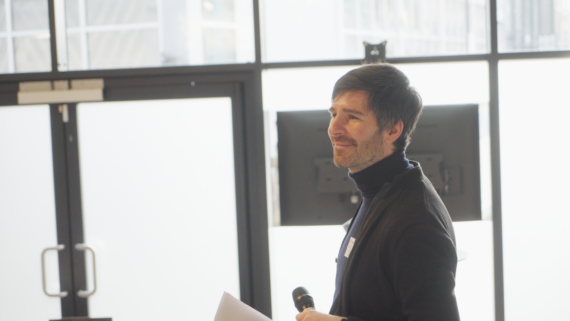
The Fyre Festival documentary is really hard to watch if you run events.
There’s a moment when somebody asks one of the staff:
“How come you were selling tickets to the festival 48 hours before, when you KNEW it was going to be a fiasco?”
Their response is something like:
“Hey, every festival I’ve worked on felt like a disaster until right before the start.”
I bet a lot of people who run events or conferences can relate to that. You can have everything in place – all the badges printed, all the speakers booked – and still be convinced that the day will be a complete and utter circus.
Well, on 24th January 2023 we ran our latest event – an agency operations conference called Clockwork.
Happily, it was not a disaster at all. In fact, people liked it!
We had 95 people there and it generally went very well. Thanks to our sponsor Scoro for helping make the day such a success.
After our events we always ask for feedback – and people are very candid. They tell us exactly what they liked and what they didn’t like. We like to publish these findings.
Here’s why:
- You might be curious to hear what others thought of the event.
- You might like to know what mistakes to avoid if you ever run conferences or events yourself.
- We want you to know we take your feedback seriously, and that we act on what you say.
Here’s the feedback
We asked people: “Overall, how satisfied were you with the event?”
The average score was 4/5 ⭐️
| Number of responses | Rating |
| 0 | ⭐️ |
| 1 | ⭐️⭐️ |
| 4 | ⭐️⭐️⭐️ |
| 16 | ⭐️⭐️⭐️⭐️ |
| 6 | ⭐️⭐️⭐️⭐️⭐️ |
That’s good. But let’s find out what people didn’t like, and then we’ll go into the positive stuff.
“The events need to be crunchier”
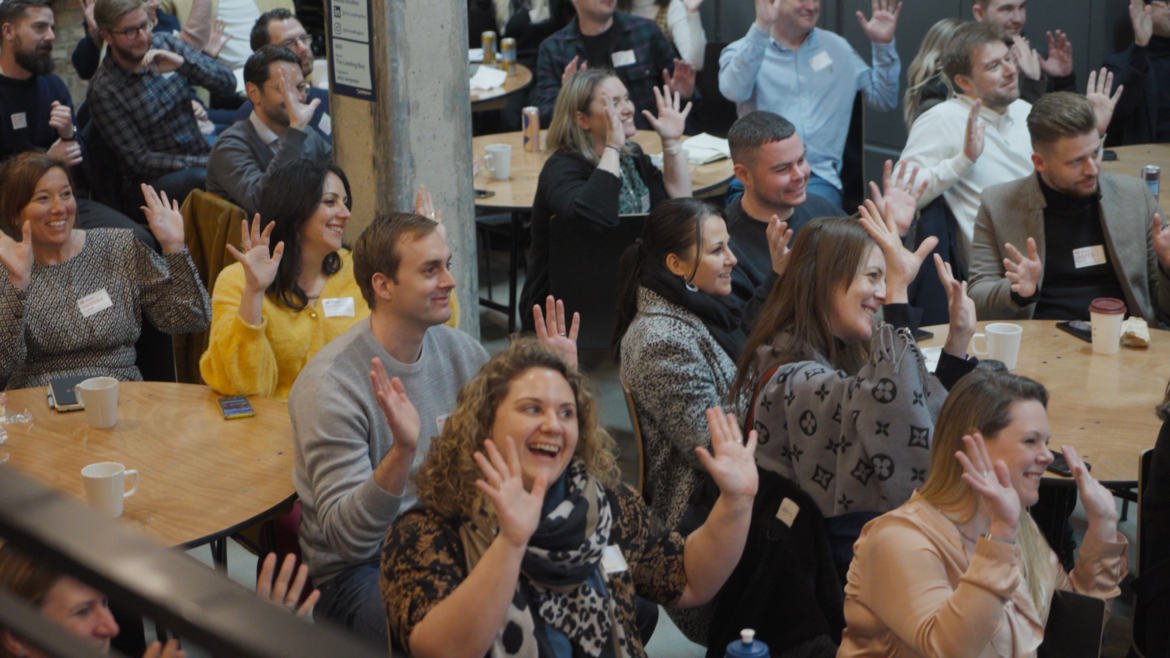
Some people wanted more of a “presentation” format, rather than interviews.
For example, the person who left two stars said this:
“Felt very anecdotal chats – didn’t feel like a lot of ‘firm’ sharing of information.”
Another person, who left three stars, felt we needed to dig a bit deeper with our guests:
“I thought it was going to be a really detailed, insightful event, and it felt like a load of ‘chats’ – which didn’t seem good value for the ticket price.”
Oof! 😑
This sentiment was actually echoed by a few people who awarded the event a high score:
“There’s a lot of emphasis on time honoured challenges. Timesheeting, automating, writing up process. I wouldn’t mind seeing some practical sessions on how you convert data from timesheeting into margin management, and use that to make decisions on servicing, resourcing, estimating.”
“I think I’d prefer to hear speakers presenting around a specific topic, and then a follow-up with a Q&A. I thought the interview style didn’t really allow the audience to connect with the speakers, as they were answering leading questions.”
This is quite tough feedback, but it is really useful.
I also want to say that our guests did a great job of explaining their situations and articulating their challenges. They were working completely within the format we asked them for. But what some delegates seem to want is a slightly different format – more a presentation style.
We will take that on board, and make our future events a bit “crunchier” in terms of take-aways.
For example, at our next event in March 2023 (The Robots Are Coming – an event about agencies using AI), we’re positioning the content as demos rather than talks – and we’ll do something similar at our next Clockwork events (in Manchester and London) too.
You might think, ‘Why haven’t we done this before?‘
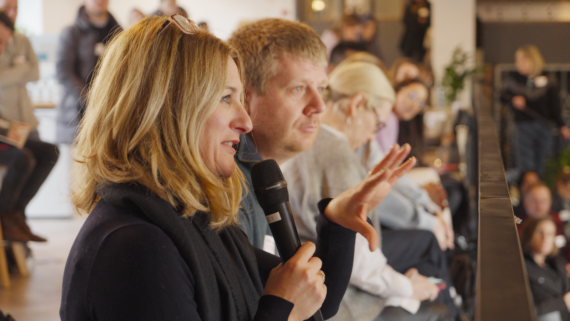
Well, a lot of events and conferences do indeed have people standing up and presenting slides. We haven’t done that typically. Instead, our format is to have people go up on stage and “talk through” their story.
Our team pre-interview them before hand, so we know the main things we need to pull out of them.
We do it this way for a few reasons:
- With an interview format, you can highlight people who wouldn’t otherwise want to stand up and speak.
- It also makes the event more interesting. Because we’ve already “pre-interviewed” them, we know what the best bits are – and we can make sure they talk about those.
- When people are not using slides, it’s easier to interrupt people when they go off-piste or start waffling. 🥱
- With slides, sometimes you get a sugar rush of information – you might take pictures of one or two – but once you leave you realise you haven’t actually learned anything.
But, we get it. It’s nice to see things! It’s nice to take photos of things! As a take-away, we’ll make sure to have more tools and visuals in the future.
“The throwable microphones chip my nails”
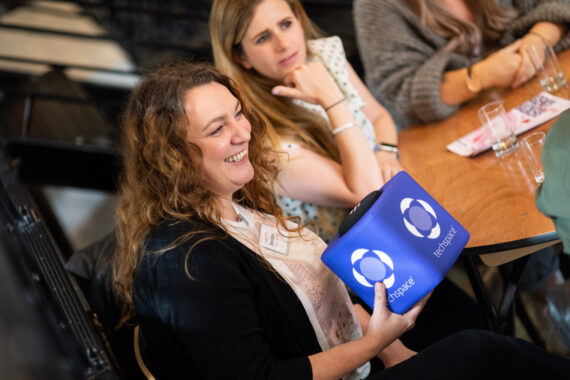
One interesting feedback I wasn’t expecting was about our throwable microphones.
We use Catchbox mics at our events. They are soft, wireless microphones that you can lob around the crowed to encourage people to participate. They’re fun, and inject a bit of energy into proceedings.
But – interestingly – not everyone likes them. And for reasons I hadn’t considered!
One person has left this interesting comment:
“Whilst the lobbable microphone seemed fun, if you are a lady with long nails AND/OR a terrible catch (of which I am both) that is my worst nightmare. I asked one question and didn’t want to ask another after for fear of looking silly trying to catch it.”
Hadn’t thought of that! Good feedback 👍 💅
I’m not sure what to do with this.
We try quite hard to include people in our events, and passing the mic around the room does really help make the event inclusive. So I don’t want to drop it completely. I like the fact that people who are too shy to come to the front, or stand up on stage, still get to have their say from the comfort of their table.
I think in future we’ll just be more mindful that not everyone wants to catch the mic – so we’ll give them an option to request a handheld mic be brought to them.
“More time to talk on the tables”
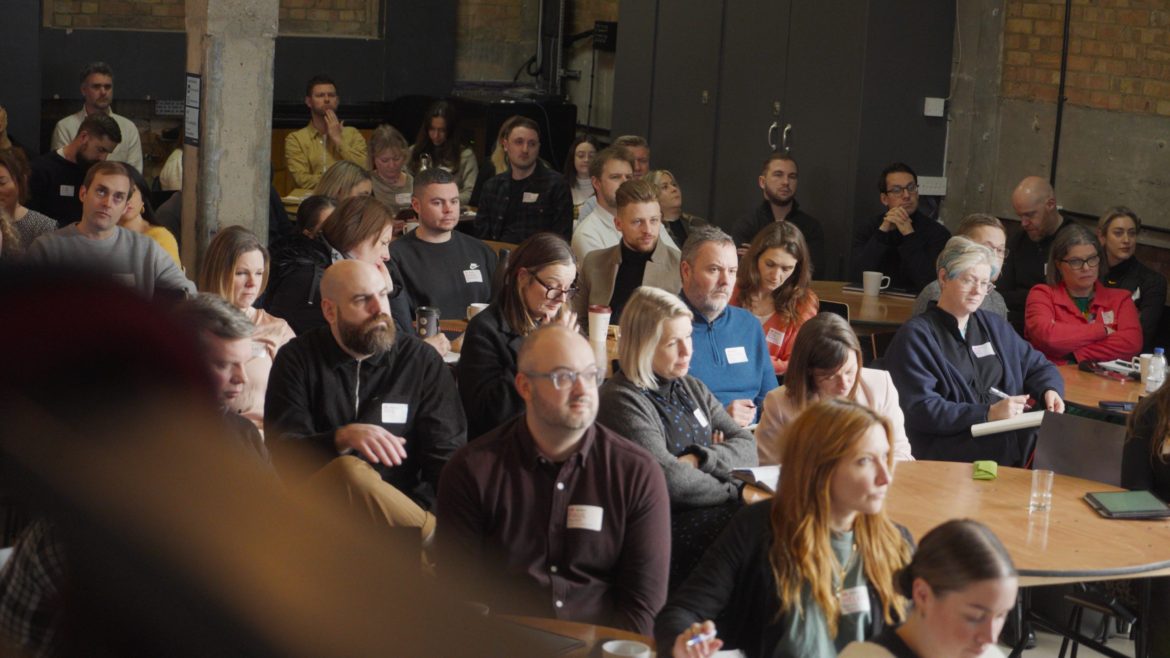
The other main negative feedback was that people felt there wasn’t enough time to speak on their tables.
One comment:
“Reduce the number of speakers and allow more time for questions and discussion, especially when it got more about the practical ways of processes mid-way. Get smaller tables so people can maybe sit closer to the stage.”
This was actually a tough banana skin 🍌 to slip on, since this is always such a key feature of our events!
We always have you seated at tables so you can speak to each other. This actually costs much more because 1) it reduces the venue capacity greatly, and 2) we have to hire those tables from the venue each time. (I swear we must have paid for those tables 10x over by now.)
We did give people three chances to breakout – one during the coffee break, one with a special “table talk” section, and also during the drinks afterwards. But we normally have more opportunities during the event itself.
There were a few reasons for this:
- We over-packed the schedule. In our enthusiasm for this event, we had six spotlights when we should really have had four or five.
- The room was busy. I didn’t want to put as much emphasis on the table talks, because some people didn’t have a table.
In future, we’ll run the event slightly longer (start at 1.30pm instead of 2pm) and make sure there’s always time to discuss what you’re hearing with other delegates.
It was too cold!
We always get comments about the venue. This time was no different!
🥶 Some people said it was too cold.
As I joked on the day, some of you will be cold. It’s amazingly hard to get a big room to be the correct temperature. When I arrived it was cold, but as soon as people filled the room it warmed up. But then it got cold again!
The heaters cause a lot of noise, so we don’t keep them on all the time. We’ll just have to monitor this better in future. I might assign a “temperature cop”.
🙉 Some people couldn’t hear.
Talking of noise, sound was an issue too. For some reason, the mics are quite low at Techspace. We’ll find out what we can do there. Also, some speakers didn’t hold the mic close enough to their mouth.
(Fun fact: when you’re on the stage, you get a weird feedback effect that tricks you into thinking you’re speaking too loudly, so you then think to hold the microphone further away from your mouth.)
👥 It was a very busy afternoon.
Yep – it was busy:
“It was a bit packed and we ended up at the side.”
“Next time I would definitely get a bigger room! The layout didn’t flow very well in terms of coming in to the venue. Everyone was crowded by the door waiting to get stickers, then the drinks queue was stopping everyone who needed to get past to hang their coat or go to the bathroom. And once you got a coat and drink there wasn’t anywhere to chat to people before sitting down.”
I’m sorry that this was the case.
This happened for a few reasons:
- We usually have a drop-out rate of 10% to 20%. People get tickets and then simply don’t show up on the day. This time that didn’t happen. We only had six people not show up. (Operations people are organised.)
- In future, we’ll just be stricter on capping numbers.
Why not just get a bigger venue?
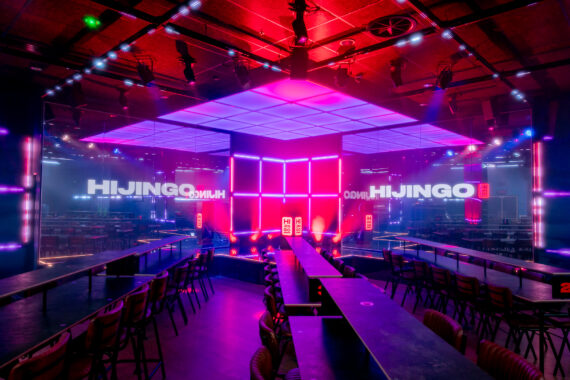
We probably will.
It’s not as simple as you think though. If you want to do an event in London, and you want it central and modern and “cabaret style”, there are a LOT of great cute little venues for up to 100 people, and there are a LOT of epic ballrooms with swirly carpets for 500+ people. But once you fall in between, as we are starting to do, the economics get really funny.
Our next London venue for Clockwork is actually this place – Hijingo! It’s a futuristic, multi-sensory bingo room.
It has quite exciting AV features, but also much more space – with room for 150 people.
Okay…. what DID you like?
Most of the feedback was overwhelmingly positive.
If you read this, you might get the impression that our events are terrible and people just moan. That isn’t the case at all! We’ve just chosen to focus on the stuff we can improve here – mostly because that’s more interesting for you to read.
Here’s some things that people said they liked:
⚙️ People liked that operations people had their very own event.
“It was great that it was the first event specifically for our role I have found in our industry and to be able to chat to others on best practice.”
Generally, you liked being in the same room as lots of other nice people doing your job at different agencies:
“Good honest stories, a feeling of togetherness for operational staff wherever their business is on its journey. Ella Cooper’s talk on Templates, Guidance Notes and Process was particularly strong, that felt material and something to take away and implement.”
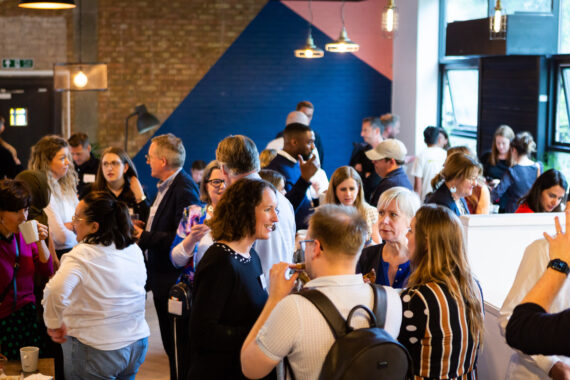
😇 People liked the tone.
A lot of people enjoyed the “vibe”, which I’m pleased about – because we try hard to make our events feel like you’re among friends:
- “Meeting other contemporaries. There was a good buzz, a good amount of people.”
- “Great atmosphere, great content, fantastic host, brilliant crowd.”
- “Great vibe, interesting stories and research, fun and open environment, lots to learn, good people who were up for it and engaged.”
- “Good honest stories, a feeling of togetherness for operational staff wherever their business is on its journey.”
At quite a lot of business events – even ones for the agency community – the whole thing feels “serious”. The host comes up on stage at the start and says some grave-sounding things, and people flick into frowny business mode. People nod sagely, and put up their hands with things like: “This is more of a comment than a question”. The whole thing is just not very fun.
What are our takeaways?
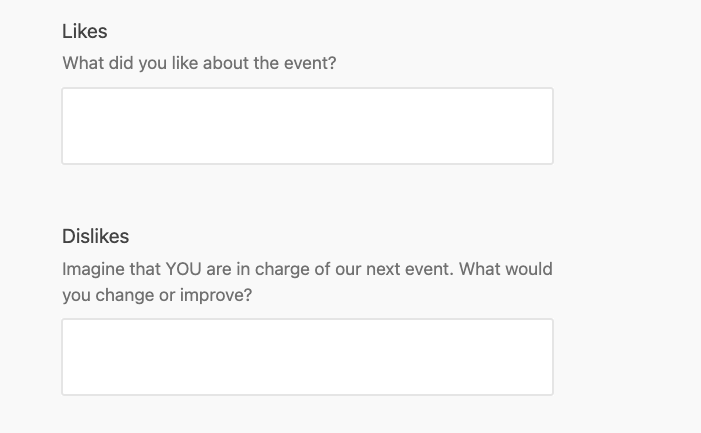
One huge takeaway is if you’re doing an event, always ask for feedback.
Nobody will ever really come up to you and tell you anything you can do to improve when you’re actually at the event. You have to ask for it.
(Over the years, we’ve found that you have to frame the request in a certain way. The best way is to ask people what THEY would do differently if they were in charge of the event. That way you get much richer feedback. Otherwise, people are a bit too nice.)
I hope you found this useful. If you would like to come to one of our events, they are all listed at www.agencyhackers.com/live.
